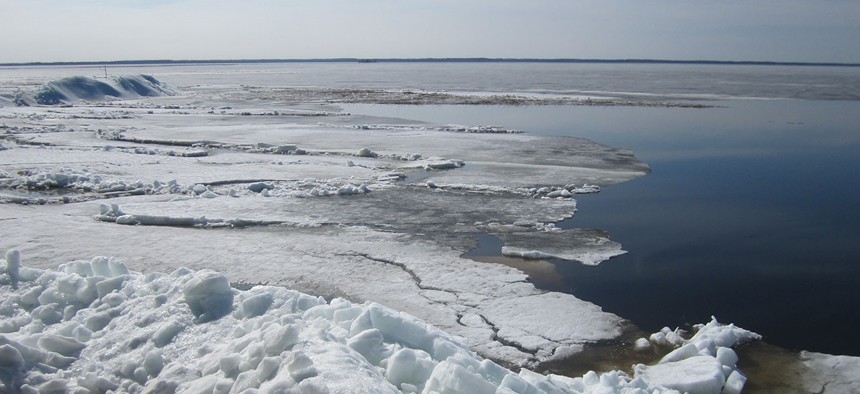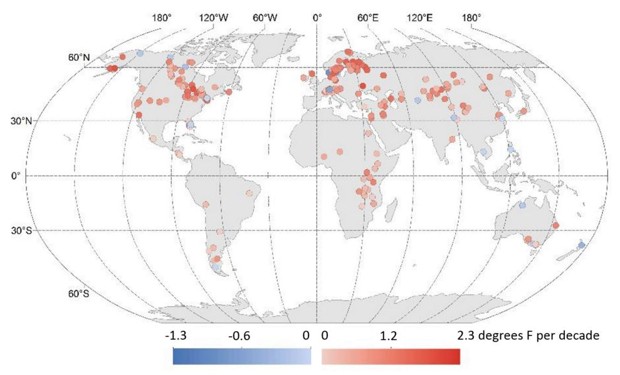
Ice-covered lakes, like Estonia's Lake Vortsjarv, warm faster than those with open water. T.Noges/NSF
NASA Researchers: The Earth's Lakes Are Warming at a Disturbing Rate
Many lakes are growing hotter quicker than the oceans and atmosphere.
You hear a lot about the problems posed by warming oceans: sea-level rise , habitat disruption, globe-spanning die-offs of coral . What you hear less of is how climate change is affecting the world’s lakes, though new research suggests we should start planning for this problem yesterday.
Using satellite and ground data, researchers at NASA and elsewhere probed more than half of the planet’s bodies of fresh water (235 lakes total). What they found was alarming: Lakes are heating up an average of 0.61 degrees Fahrenheit every decade, which is faster than the warming rates of the oceans and atmosphere. At higher latitudes the warming is even more pronounced at 1.3 degrees a decade, which jibes with the fact that earth’s poles are experiencing a tremendous amount of toastiness.

Red spots mark lakes that have warmed over the past 25 years. (Illinois State University / USGS / California University of Pennsylvania)
Several things appear to be influencing the heating of the lakes, including a rise in global air temperature, less cloud cover allowing more solar radiation to reach the water, and protective ice covers disappearing earlier in the year. And while this trend might make for more-comfortable swimming holes, it’s likely to have drastic effects on the environment.
Warmer lakes will allow more methane to seep into the air—about a 4 percent increase in the next decade, according to the researchers—and methane is much more potent a greenhouse gas than CO2. And blooms of algae are expected to leap 20 percent over the next century thanks to the balmy water, with about 5 percent of them likely being toxic. If you think staying out of the water will prevent algae from causing you and your pets harm, consider fish that consume the organisms can pass on illnesses to people who eat them, including a type of poisoning that makes “cold things feel hot and hot things feel cold.” (That specific malady is expected to spread as temperatures rise, natch.)
The transformation of lakes could also have profound impacts on human economies and food networks. As one of the 60-plus scientists who took place in the research explains :
“Lakes are important because society depends on surface water for the vast majority of human uses—not just for drinking water, but manufacturing, energy production, irrigation and crops,” said paper coauthor Stephanie Hampton of Washington State University. ”Protein from freshwater fish is especially important in the developing world.”...
Warm-water lakes have experienced less dramatic temperature increases, but their waters may have already nearly reached the highest temperatures fish can tolerate, Hampton said.
That’s particularly important in the African Great Lakes, home to one quarter of the planet's freshwater supply and an important source of fish for food.

NEXT STORY: The Netflix Effect on Training






